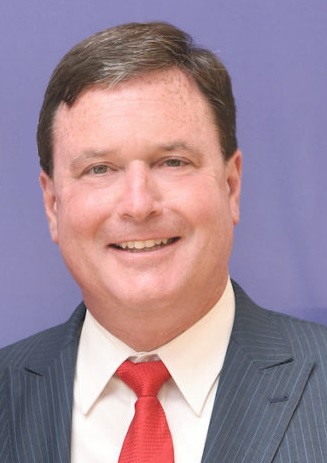
The task force currently assessing the city’s water utility is about four weeks away from delivering its final report. Salem Councilman Roger Pennington updated the Board of Public Works and Safety and the Common Council on the task force’s progress during the Monday, July 8, meetings.
Pennington said the task force has met weekly during the past eight weeks. In addition to interviewing water utility employees, the task force has conducted site visits of other utilities. On Wednesday, July 9, the task force was scheduled to tour Scottsburg’s water utility.
During its April 9 meeting, the Council unanimously approved the formation of the task force, which Pennington proposed and dubbed “Task Force Clean Water.” The task force has been reviewing the utility’s personnel and their duties; infrastructure; water production costs; and rates.
Pennington’s aim with the task force is to restore public confidence in the utility. The task force is comprised of two council members and three community members.
The task force’s role is advisory only: it will be left to the city’s elected officials to make any changes based on their recommendations.

The city obtained a short-term loan in 2020 to upgrade its wastewater treatment plant, and now officials are preparing to seek long-term financing. The matter was discussed during the Monday, July 8, meetings of the Board of Public Works and Safety and Common Council.
In 2020, the Council approved sewer works bond anticipation note, which allowed the work to begin. The loan must either be paid in full – including interest – or refinanced before June 1. Beau Zoeller, the city’s attorney, noted that the 2020 vote approved both the short-term and long-term financing of the project.
Andre Riley, of Baker Tilly Municipal Advisors in Indianapolis, said that Salem is in a good position to obtain a low interest loan through the state. The state’s low interest loans see a lot of applicants, making it competitive. It was noted that the Indiana Finance Authority has favorably ranked Salem 13th of 108 communities seeking the loans.
The state’s loans have interest rates of about 2.5 percent or less. If the city were to obtain other financing, interest rates could be about double that amount.
The city currently owes about $2.4 million on the note, including interest; however, it’s possible the city could refinance that debt and obtain more funds to pay for mandated upgrades to remain compliant with state and federal guidelines as well as capital improvement needs.
The work approved in 2020 was based on an assessment conducted by Wessler Engineering. Part of that assessment included smoke testing of the city’s underground wastewater pipes. Wessler had told the city to expect a total project cost between $1.4 million and $1.5 million.
In May 2020, officials approved the bond anticipation note of up to $3 million. In addition to construction costs and interest, other costs such as administrative fees are included in the loan.
In December 2020, Thieneman Construction Inc. was approved as the winning bidder for the $1.4 million project.
The 2020 vote came about a year after the Indiana Department of Environmental Management fined the City of Salem $6,000 for violations by the city’s wastewater plant. Those violations included six instances when an estimated 3.5 million gallons of raw sewage was released into the West Fork of the Blue River.

A computer error has delayed the mailing of Salem’s utility bills.
Mayor Justin Green announced the problem during the Monday, July 8, meeting of the Salem Board of Public Works and Safety.
Green said it is hoped the bills will be printed Thursday, July 11, then mailed.
The Board of Public Works voted unanimously to waive any late fees or water shutoffs that would have been imposed July 18 for the June water bills.

By overturning the so-called “Chevron deference” rule that gives outsized power to federal agencies in interpreting laws, the U.S. Supreme Court is helping restore American liberty and the proper balance of powers, Attorney General Todd Rokita said today. His office — along with 26 other states — asked the court months ago to take the critical step of overturning the Chevron rule because it created an unaccountable administrative state.
“We are seeing truly remarkable progress in dismantling an administrative state that has oppressed Americans and their liberties for far too long,” Attorney General Rokita said. “The U.S. Constitution gives authority to Congress, not unelected bureaucrats, to enact laws. For 40 years, we tolerated a precedent that turned that principle on its head.”
That precedent — Chevron v. Natural Resources Defense Council — became null and void with the Supreme Court’s decision Friday in Loper Bright Enterprises v. Raimondo.
When disputes arise over the meaning of laws, those disputes should be settled in the courts rather than the back rooms of federal agencies, Attorney General Rokita said.
“Hoosiers and all freedom-loving Americans can be grateful the Supreme Court is curbing the excessive power that has been given to executive-level agencies,” Attorney General Rokita said. “When we rely on the administrative state to govern us, we lose the checks and balances inherent in the system created by America’s founders.”
The Supreme Court has also indicated a willingness to trim back the powers of the administrative state in other recent cases — such as on Thursday when it stayed the EPA’s so-called “Good Neighbor Rule” that imposes extreme emissions-control measures on “upwind” states like Indiana to mitigate pollution in “downwind” states. That case will continue to be litigated in appellate and circuit courts.
Circuit court clerks who serve as voter registration officers can receive additional compensation according to a new Indiana law.
Clerk Stephanie Rockey explained the impact of the new law during the Monday, July 1, meeting of the Washington County Council.
Rockey said that Washington County’s population is too small to require a separate voter registration officer, so it remains her responsibility.
Clerks already receive a per diem compensation; however, the new law also allows the county fiscal body – which is the County Council – to provide a stipend of up to $2,500 “to a circuit court clerk who serves as a voter registration officer each year in which a general election is held.”
The stipend wouldn’t be paid during municipal election years or during special elections. The law was effective as of July 1.
Rockey said the state assigned more responsibilities to clerks, so the stipend is meant to compensate them for the extra work.
Council President Mark Abbott told Rockey discussion on the matter would be delayed until the next regular meeting since the Council continues its practice of not voting on issues at the same meeting they are raised.
The Council asked their attorney to research the new law and report back on the findings.
The Council’s next regular meeting is 9 a.m. Monday, August 5.
SalemLeader.com
Leader Publishing Company of Salem, Inc.
P.O. Box 506
117-119 East Walnut Street
Salem, Indiana. 47167
Phone: 812-883-3281 | Fax: 812-883-4446
Business Hours:
Mondays through Fridays, 9:00am - 5:00pm
News:
news@salemleader.com
Office:
office@salemleader.com
Publisher:
publisher@salemleader.com
Business
- More Business News
- Go To Guide
- Business Directory
- Real Estate
- Auctions
Education
- More Education News
Opinion
- Editorials
- Letters to the Editor
- Columns
- Unsung Heroes
- Days Gone By
- In the Garden
- Guest Columns
- Reader's Poll
- Salem Leader Forum
- Questions and Answers
Church
- Bible Aerobics
- Church News
- Church Directory

